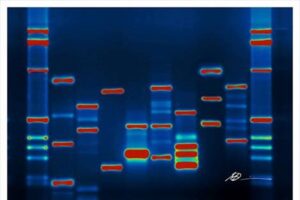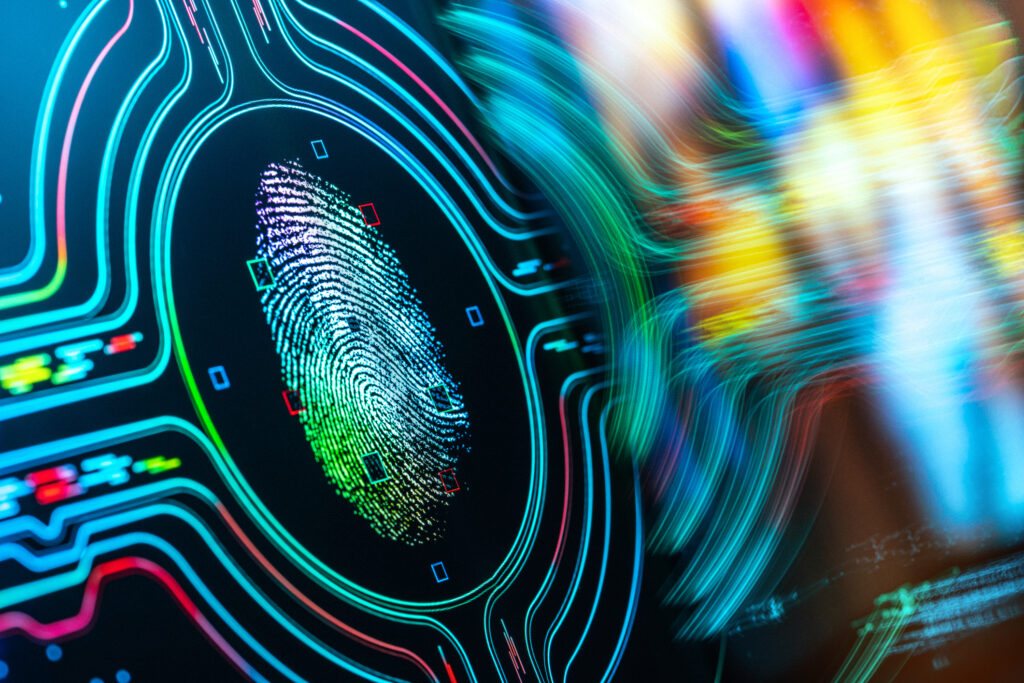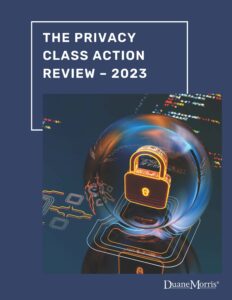 By Brandon Spurlock and Jennifer A. Riley
By Brandon Spurlock and Jennifer A. Riley
Duane Morris Takeaways: On July 18, 2023, in Salazar v. Paramount Global d/b/a 247Sports, No. 3:22-CV-00756 (M.D. Tenn. July 18, 2023), Judge Eli Richardson of the U.S. District Court for the Middle District of Tennessee dismissed a class action lawsuit against Paramount Global because the Plaintiff failed to state a claim under the Video Privacy Protection Act (“VPPA”) where Plaintiff’s allegation that his subscription to an online newsletter made him a “subscriber” under the statute was insufficient because he did not allege that he accessed audio visual content through the newsletter. The VPPA is a law from 1980’s stemming from the failed Supreme Court nomination of Robert Bork, which involved his video rental history being published during the nomination process. In the ensuing decades, companies are seeing an increase in class action lawsuits under the VPPA and other consumer privacy statutes where plaintiffs seek to levy heavy penalties against businesses with an online presence. This ruling illustrates that some federal courts will closely examine such statutes to ensure that a plaintiff adequately states a claim based on the underlying statutory definitions before allowing a class action to proceed.
Case Background
Plaintiff filed a putative class action against Defendant Paramount Global d/b/a 247Sports alleging a violation of the VPPA. Id. at 1. According to Defendant, 247Sports.com is an industry leader in content for college sports, delivering team-specific news through online news feeds, social platforms, daily newsletters, podcasts, text alerts and mobile apps. Id. at 2. Plaintiff alleged that Paramount installed a Facebook tracking pixel, which allows Facebook to collect the data on digital subscribers to 247Sports.com who also have a Facebook account. Id. at 3-4. So if a digital subscriber of 247Sports.com is logged-in to his or her Facebook account while watching video content on 247Sports.com, then 247Sports.com sends to Facebook (via the Facebook pixel) the video content name, its URL, and, most notably, the digital subscriber’s Facebook ID. Id. at 4. Plaintiff claimed that Paramount violated the VPPA when it installed the Facebook pixel, which caused the disclosure to Facebook of Plaintiff’s personally identifying information. Id. at 5. Paramount moved to dismiss for lack of subject-matter jurisdiction under Federal Rule of Civil Procedure 12(b)(1), and for failure to state a claims for relief under Rule 12(b)(6).
The Court’s Decision That Plaintiff Had Standing Under The VPPA
First, Paramount argued that Plaintiff did not have standing because Plaintiff failed to adequately allege either a concrete injury in fact or the traceability of the injury to Paramount’s conduct, because the alleged disclosure of Plaintiff’s information to Facebook did not constitute a concrete injury. Id. at 9. Rejecting Paramount’s standing argument, the Court noted that the VPPA created a “right to privacy of one’s video-watching history, the deprivation of which – through wrongful disclosure, or statutory violation alone – constitutes an injury sufficient to confer Article III standing.” Id. at 11-12. In other words, the VPPA created a statutory right to have personally identifiable information remain private by prohibiting disclosure to third parties. Id. at 12. Thus, the Court ruled that Plaintiff’s allegation that his personally identifiable information was transmitted to Facebook in violation of the VPPA identified a concrete harm for standing purposes. Id. at 14.
Plaintiff Failed To State A Claim Under The VPPA
Paramount also asserted that Plaintiff had no claim under the VPPA because he was not a “consumer,” meaning “any renter, purchaser, or subscriber of goods or services from a video tape service provider.” Id. at 17. Because Plaintiff was not a “consumer” within the meaning of the VPPA, Paramount argued he was not a “subscriber of goods or services from a video tape service provider,” and Plaintiff did not state a claim under the VPPA because the statute only protects individuals who are “consumers” under the statute. Id. at 18.
The Court noted that although the VPPA does not define “subscriber,” the dictionary definition indicates that “subscriber” is a person who “imparts money and/or personal information in order to receive a future and recurrent benefit.” Id. at 19. Further interpreting the statute, the Court reasoned that a consumer is only a “subscriber” under the statute when he or she subscribes to audio visual materials. Id. at 21. Completing the analysis, the Court reasoned that under the VPPA, because Plaintiff’s subscription to the newsletter was not sufficient to establish that the he had subscribed to audio visual materials, Plaintiff’s position was unavailing in claiming that his subscription to the newsletter renders him a “subscriber.” Id. at 22.
The Court, therefore, dismissed Plaintiff’s VPPA class action lawsuit because Plaintiff failed to allege that he actually accessed audio visual content, which necessarily meant that Plaintiff was not a subscriber under the VPPA. Id. at 22.
Implications For Businesses
This past year has seen an uptick in VPPA class action filings against businesses that operate websites offering online videos and using third-party tracking tools. These lawsuits represent an ongoing pattern of increased consumer privacy class litigation throughout the country exposing companies to significant risk across a wide array of industries. Corporate counsel should note this ruling is a positive indication that some courts will closely examine the plain language and legislative intent of a privacy statute to ensure that a plaintiff actually states a viable claim before allowing class litigation to proceed.









